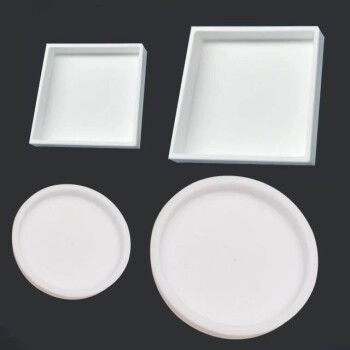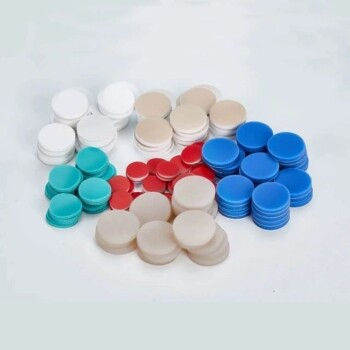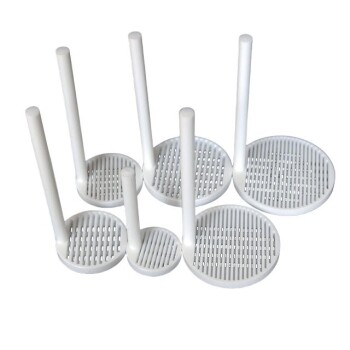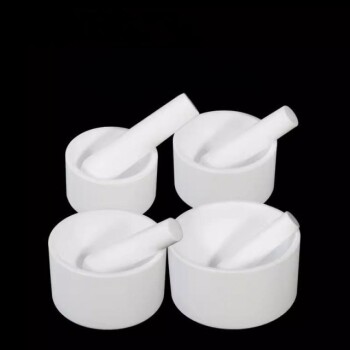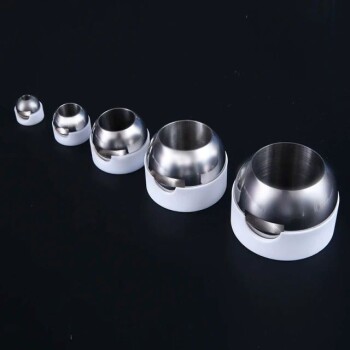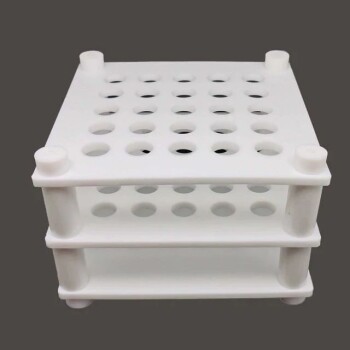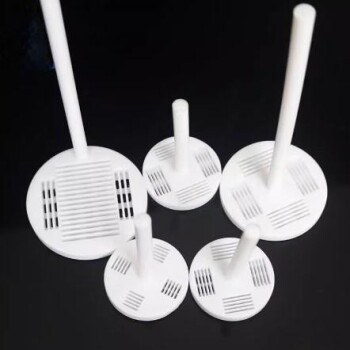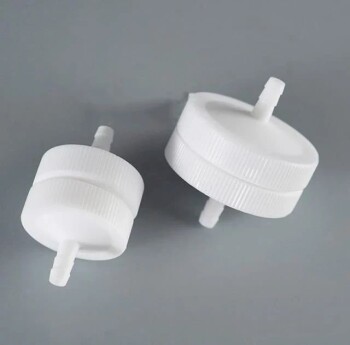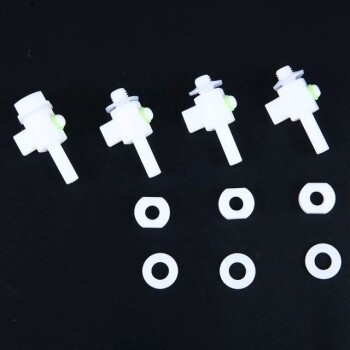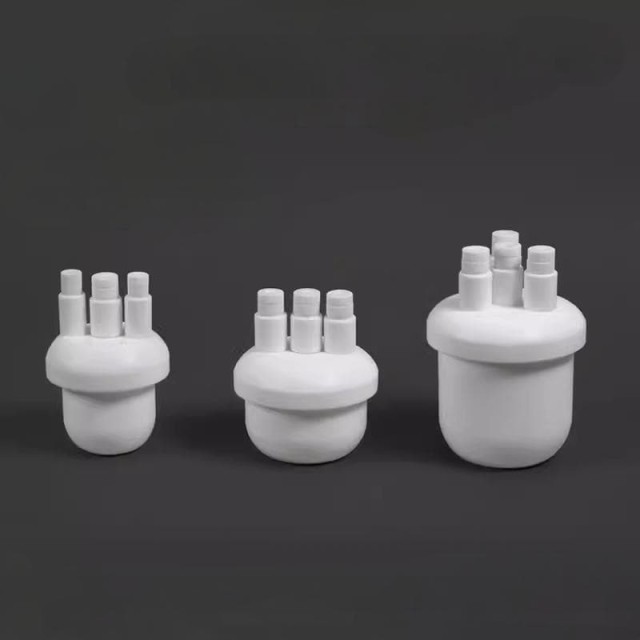
聚四氟乙烯材料
三颈圆底烧瓶定制PTFE特氟龙零件制造商
货号 : PTFE-36
价格根据 规格和定制情况变动
- 材料
- 聚四氟乙烯
- 规格
- 参见表格
运输:
联系我们 获取运输详情 享受 准时发货保证.
为什么选择我们
简易的订购流程、优质的产品和专业的支持,助力您的业务成功。
应用
PTFE烧瓶(三颈瓶)是一种多功能实验室工具,由于其耐化学性、耐温性和惰性,可用于各种应用。以下是主要的应用领域:
- 化学合成:是处理腐蚀性物质反应的理想选择,PTFE的惰性可防止烧瓶发生任何化学反应。
- 环境测试:适用于在环境分析中处理样品,特别是当样品可能含有腐蚀性化学品时。
- 热处理:能够承受-200°C至+250°C的温度,适用于样品的加热处理。
- 实验室规模的蒸馏和蒸发:三颈设计允许多个附件,非常适合蒸馏装置和旋转蒸发过程。
细节与零件
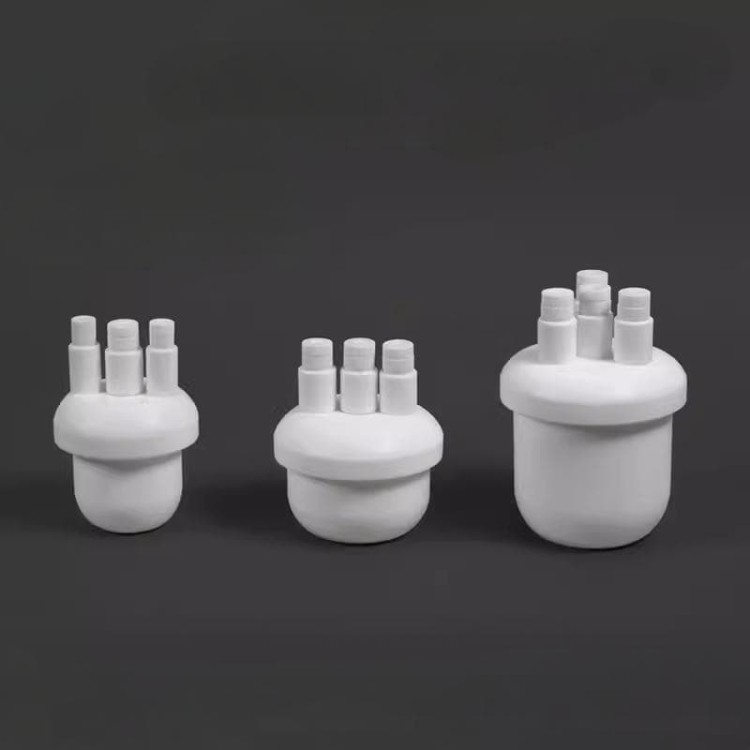
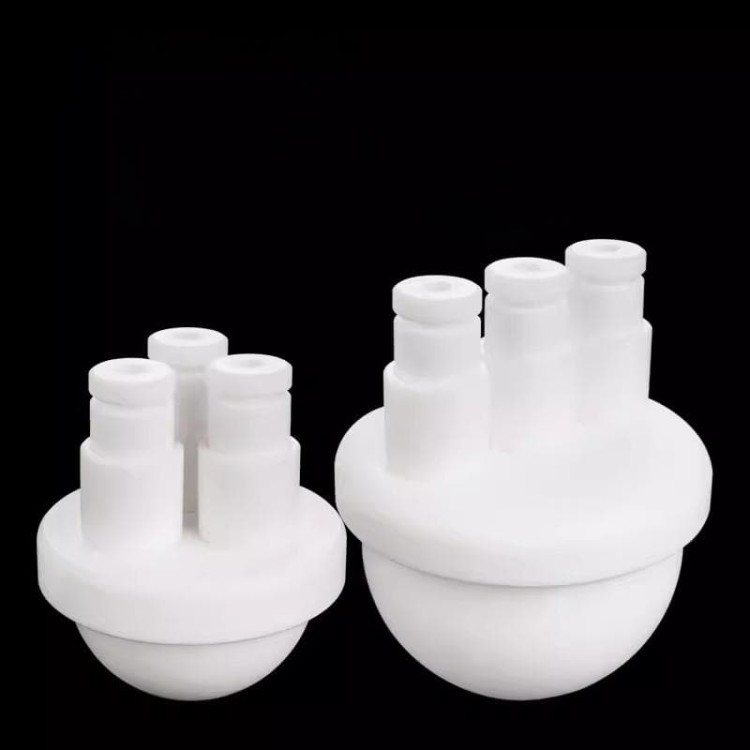
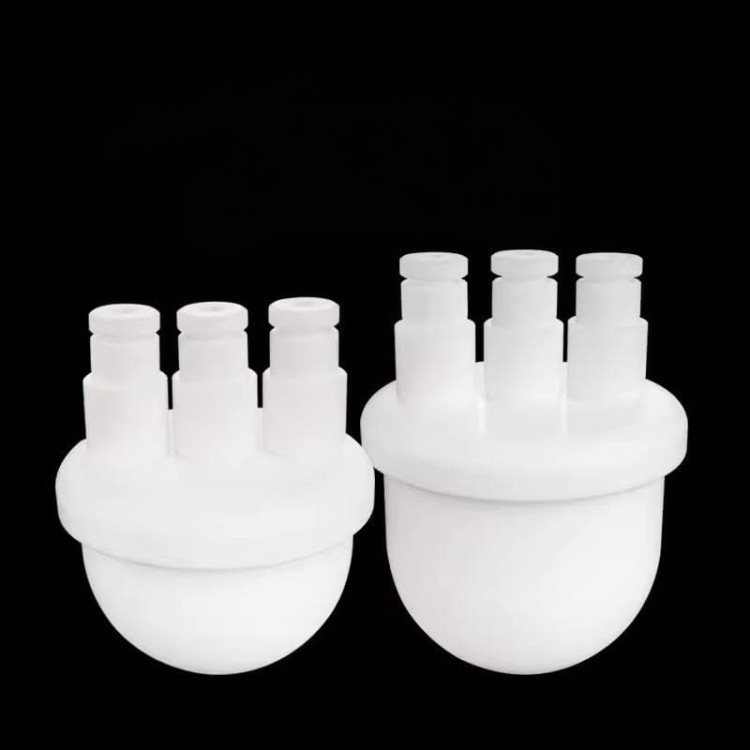
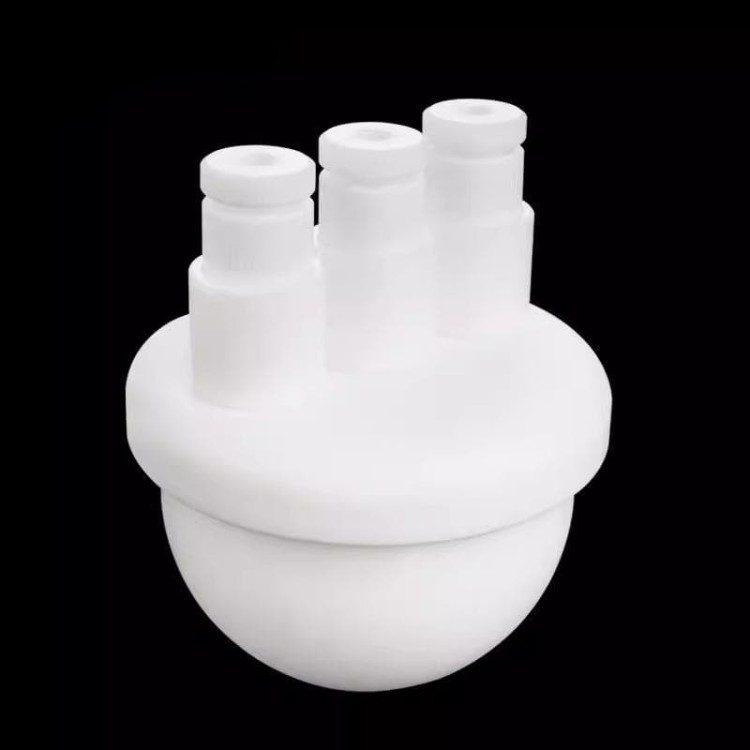
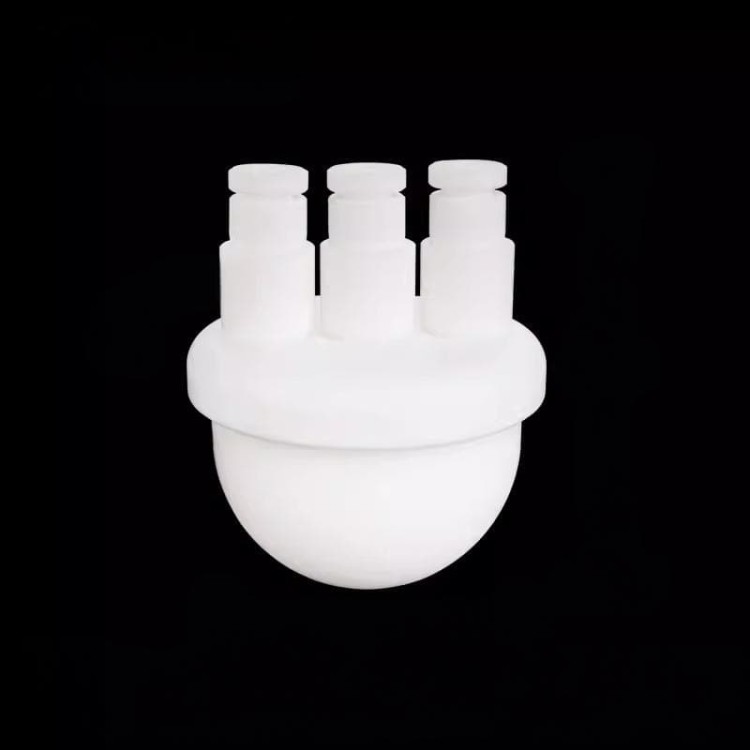
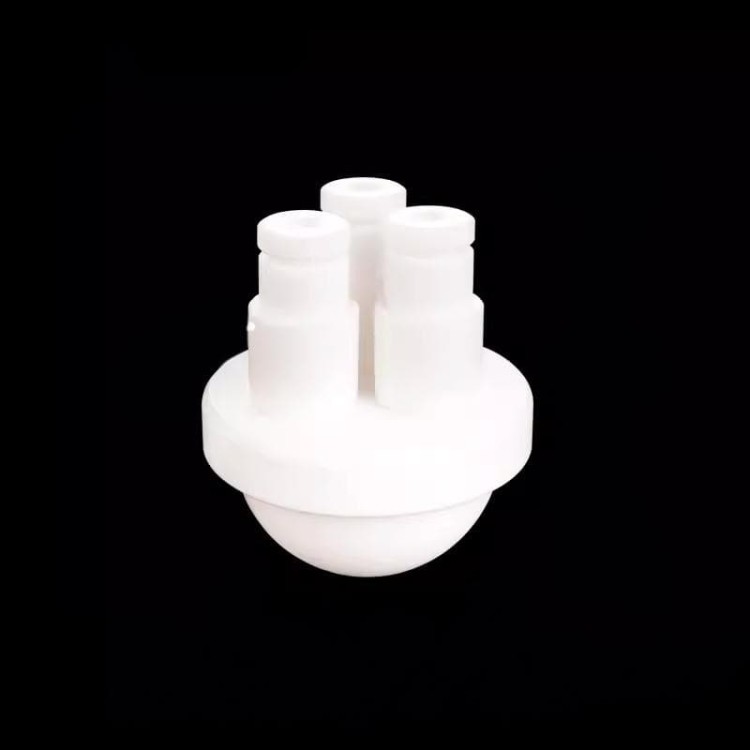
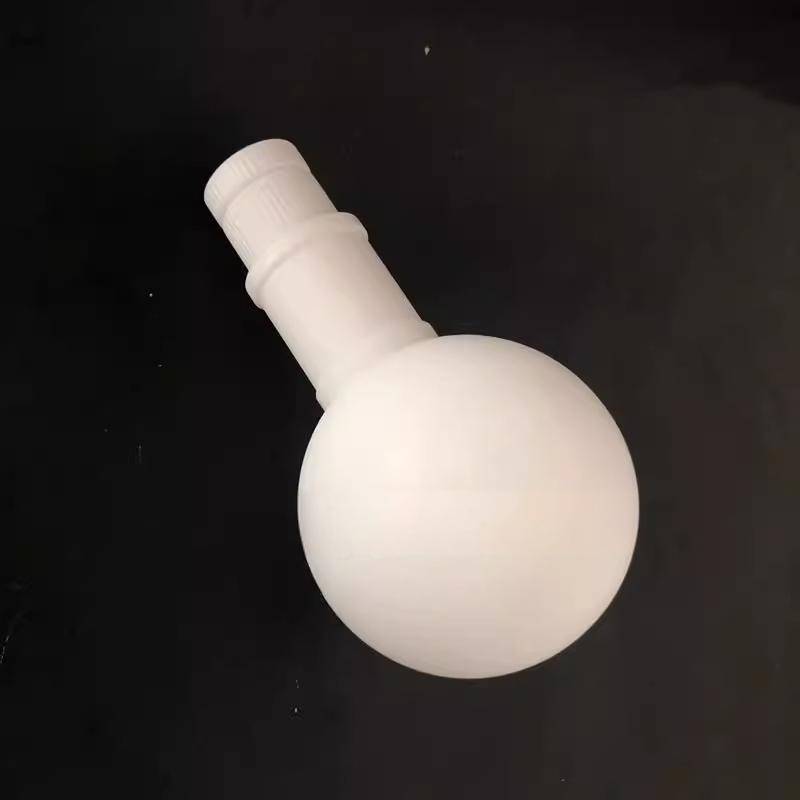
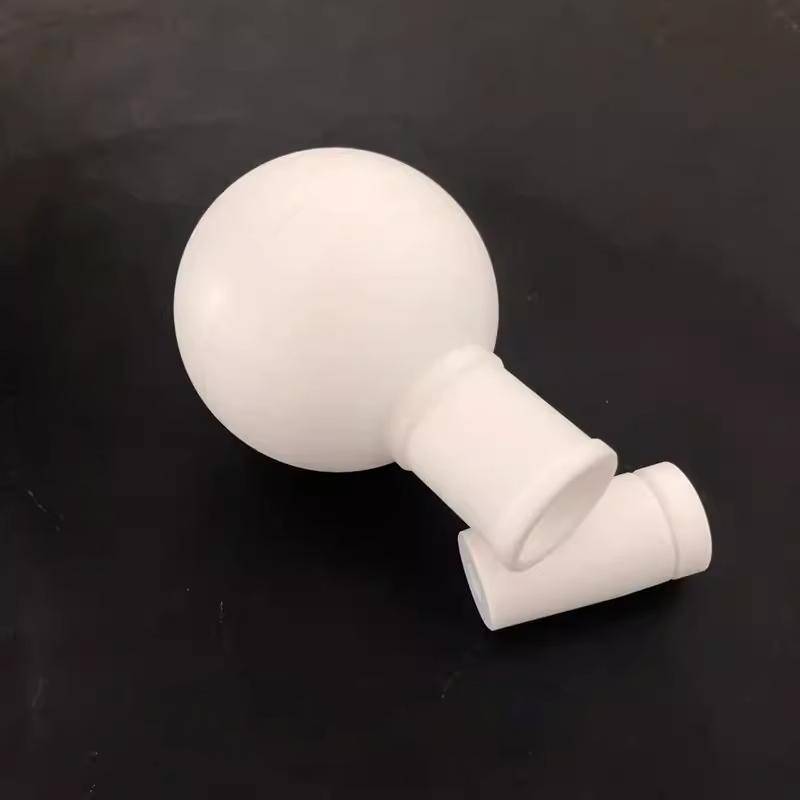
优点
PTFE三颈瓶具有一系列优点,使其成为各种实验室应用的优选。以下是一些主要优势:
- 出色的耐化学性:这些烧瓶具有极高的惰性,能抵抗包括氢氟酸在内的多种化学品。这使得它们成为处理腐蚀性试剂的理想选择,而无需担心污染或烧瓶损坏。
- 耐用性和安全性:与玻璃不同,PTFE烧瓶不易碎,降低了玻璃碎片造成的伤害和污染风险。它们还很轻便,在繁忙的实验室环境中处理起来更安全、更方便。
- 低摩擦系数和润滑性:PTFE烧瓶的表面天然光滑且不粘,便于倾倒和清洁。这还可以最大限度地减少物质粘附在烧瓶上,确保测量准确并降低交叉污染的风险。
- 耐温性:能够承受-200ºC至+250ºC的温度,这些烧瓶用途广泛,可在各种加热和冷却过程中使用而不会降解。
为您而设计
KinTek为全球客户提供深度定制服务和设备,我们专业的团队和经验丰富的工程师有能力承担定制硬件和软件设备的需求,并帮助我们的客户 打造专属个性化设备和解决方案!
请将您的想法告诉我们,我们的工程师已经为您准备好了!
行业领军企业信赖之选

FAQ
聚四氟乙烯圆底烧瓶应如何加热?
与玻璃或聚丙烯烧瓶相比,使用聚四氟乙烯容量瓶有哪些优势?
4.7 / 5
Impressive durability and chemical resistance, a must-have for any lab.
4.8 / 5
Unbeatable value for money, this flask has transformed our lab processes.
4.9 / 5
Lightweight yet robust, perfect for high-temperature experiments.
4.7 / 5
Excellent chemical compatibility, no issues with aggressive reagents.
4.8 / 5
Super easy to clean and maintain, saves so much time.
4.9 / 5
Highly satisfied with the temperature resistance, reliable in every test.
4.7 / 5
Great investment for our lab, durable and cost-effective.
4.8 / 5
The non-stick surface is a game-changer, no more stubborn residues.
4.9 / 5
Perfect for volumetric analysis, precise and consistent results.
4.7 / 5
Excellent dielectric properties, ideal for our electrical experiments.
4.8 / 5
Versatile and sturdy, handles all our lab needs with ease.
获取报价
我们的专业团队将在一个工作日内回复您。请随时与我们联系!
相关产品

定制PTFE特氟龙量筒制造商,适用于PTFE量筒 10/50/100ml
PTFE量筒是传统玻璃量筒的坚固替代品。它们在很宽的温度范围内(高达260ºC)都具有化学惰性,具有出色的耐腐蚀性,并保持低摩擦系数,确保易于使用和清洁。
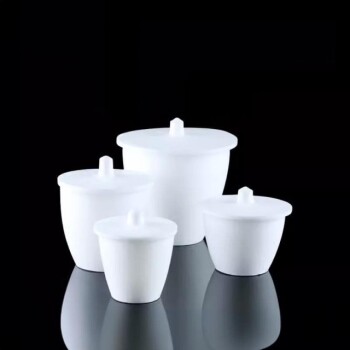
定制加工和模塑PTFE特氟龙零件制造商,提供PTFE坩埚和盖子
PTFE坩埚由纯特氟龙制成,具有化学惰性和耐受性,可在-196°C至280°C的温度范围内使用,确保与各种温度和化学品兼容。这些坩埚经过机加工表面处理,易于清洁并防止污染,非常适合精确的实验室应用。

定制PTFE特氟龙烧杯和盖子制造商
PTFE烧杯是一种耐酸、耐碱、耐高温、耐低温的实验室容器,适用于-200ºC至+250ºC的温度范围。该烧杯具有优异的化学稳定性,广泛用于热处理样品和容量分析。

定制PTFE特氟龙锥形瓶三角瓶 50 100 250ml
PTFE特氟龙三角瓶,也称为特氟龙试剂瓶,是传统玻璃瓶的坚固、耐化学腐蚀的替代品,适用于盛装酸和碱。这些瓶子不易碎、重量轻,并配有防漏螺盖,非常适合实验室使用。
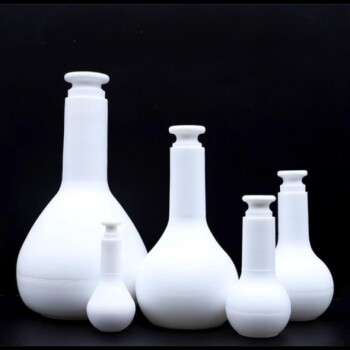
F4 PTFE 容量瓶定制聚四氟乙烯零件制造商
PTFE 容量瓶是玻璃和 PP 容量瓶的坚固替代品,非常适合测量酸性和碱性液体。该容量瓶具有化学惰性、半透明性和多种容量选择,可确保无浸出、超净的背景。其不粘表面易于清洁和维护,非常适合恶劣的实验室条件。
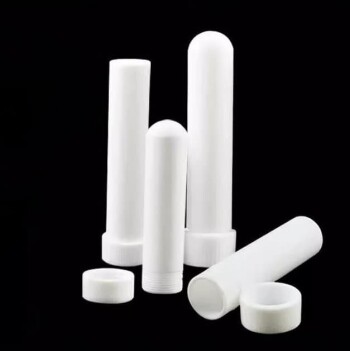
离心管定制PTFE特氟龙制造商
PTFE离心管因其出色的耐化学性、热稳定性和不粘性而备受推崇,在各种高要求领域不可或缺。这些管子特别适用于暴露于腐蚀性物质、高温或严格清洁要求普遍存在的环境。

定制PTFE特氟龙漏斗制造商,提供PTFE布氏漏斗和三角漏斗
PTFE漏斗是一种实验室设备,主要用于过滤过程,特别是在混合物中分离固体和液体相。这种装置可以实现高效快速的过滤,在各种化学和生物应用中不可或缺。

定制聚四氟乙烯(PTFE)特氟龙培养皿和蒸发皿制造商
聚四氟乙烯(PTFE)培养皿蒸发皿是一种多功能的实验室工具,以其耐化学性和高温稳定性而闻名。PTFE作为一种氟聚合物,具有出色的不粘性和耐用性,非常适合用于研究和工业中的各种应用,包括过滤、热解和膜技术。
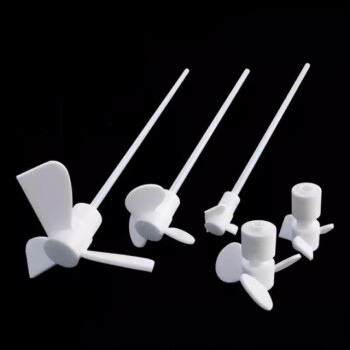
定制PTFE特氟龙零件制造商实验室高温搅拌桨混合器
PTFE搅拌桨混合器是一种多功能且坚固的工具,专为实验室使用而设计,特别适用于需要高耐化学性和耐极端温度的环境。这款混合器采用优质PTFE制成,具有多项增强其功能性和耐用性的关键特性。
相关文章

实验室用手动液压机:综合指南
探索实验室手动液压机的复杂性,包括操作、优点以及与自动机的比较。是寻求样品制备和成本效益方面详细见解的理想之选。

有机合成中的常用仪器和操作
概述有机合成中必不可少的玻璃仪器、蒸馏装置、重结晶和萃取方法。

化学气相沉积 (CVD) 工艺和高纯度 PFA 管材
概述 CVD 工艺和高纯度 PFA 管在半导体制造中的作用。

聚四氟乙烯密封件:工业防渗漏的隐形守护者
PTFE 密封件用于防止液体或气体泄漏,广泛应用于阀门、泵和管道系统。

聚四氟乙烯(PTFE)在高温环境中的性能和应用

各种分析仪器的样品制备指南
为 NMR、MS、色谱、IR、UV、ICP、热重、XRD、TEM、SEM 及其他仪器准备样品的详细说明。

分子蒸馏技术在日用化学工业中的应用
探索分子蒸馏在提高日用化工产品的质量和纯度方面的应用。

从旋转蒸发器中取出卡住的飞溅球的解决方案
从旋转蒸发器中清除卡住的飞溅球的指南和技术,包括摇晃、敲击、烘烤、冷冻和砸碎。

真理之器:容器比化学式更重要
电解实验的成功往往取决于反应器的材质。了解硼硅酸盐、石英和PTFE之间的权衡。

聚四氟乙烯(PTFE):低摩擦系数如何促进工业进步
探索聚四氟乙烯(PTFE)摩擦系数低的独特优势,分析它如何在减少磨损和提高设备效率方面促进工业技术的进步和创新。

如何使用聚四氟乙烯提高泵和阀门的工作效率
聚四氟乙烯(PTFE)因其独特的物理和化学特性,已成为提高泵和阀门效率的关键材料。

了解滤光片
光学滤光片及其类型和应用概述。
